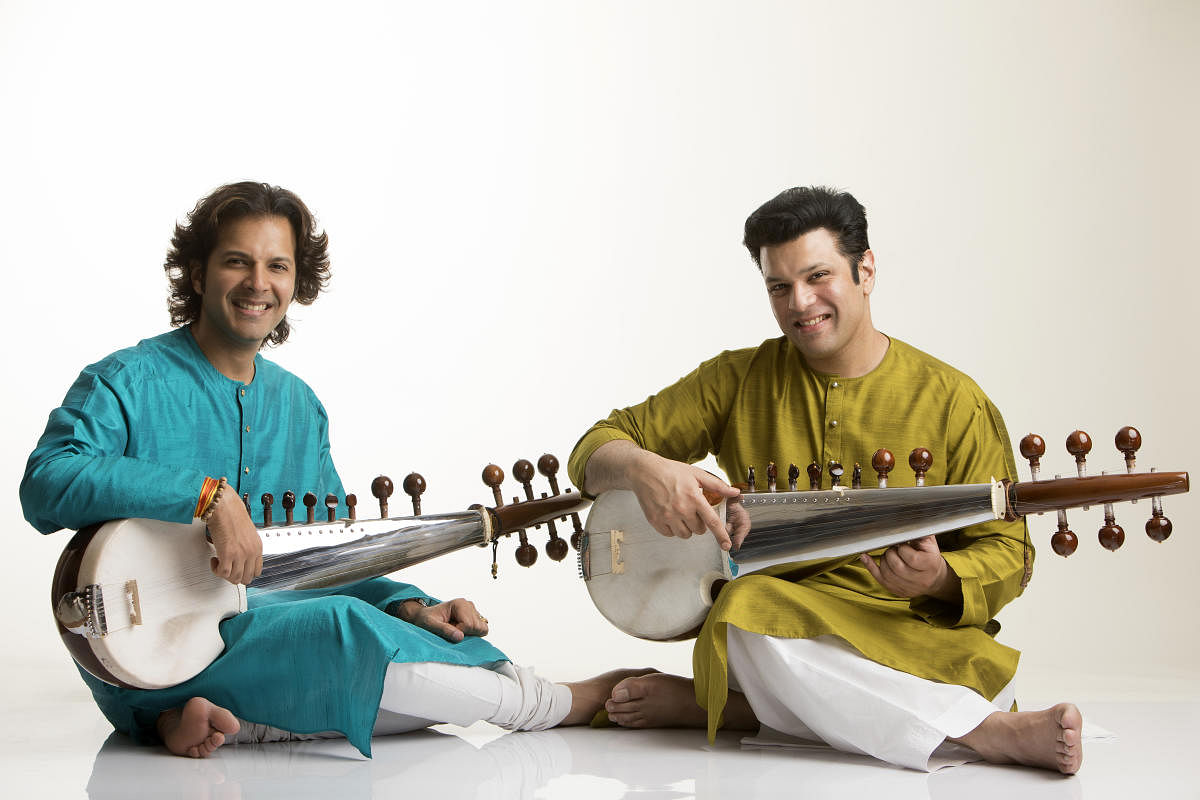
Amaan and Ayaan Ali Bangash are a musical duo any classical music lover cannot miss. Sons of sarod player Amjad Ali Khan, the twosome stand apart, their style distinct.
The duo was recently on a series of concerts, which included events at New Delhi, Mumbai, Kolkata and Singapore. Amaan and Ayaan are always on the lookout for something fresh to explore, including new musical collaborations. In a candid chat, they reveal about their latest album ‘Infinity’ and more.
How has your musical journey been?
Amaan: To be a musician is a blessing as you are not really answerable to anyone but yourself. For those few hours when you are on stage, you are in a creative frenzy, sometimes supernaturally unreal. There are times when you get off stage only to realise that something special happened up there on stage that day.
Ayaan: It is a non-debatable factor that music is the best way to connect to that supreme power that we have never seen. Be it any religion, music has always been the pathway to spirituality. It’s therefore not time-bound, but a part of a larger journey.
Are music festivals now different from when you started performing?
Amaan: We have been on stage for over 25 years. A lot has changed indeed. Social media too has had an effect on classical music. However, classical music is not a commodity that needs to be promoted. Yes, it needs to be initiated. But then, the music needs to flow, it needs to speak for itself and we need to encourage people to listen on the basis of its intrinsic melody.
Ayaan: Reversely, people have to be free enough to respond openly to what they hear based on the energy created in them by the music. It is this free flow that creates a true and lasting relationship between the music, musician and the listener.
Your latest experimentations in music...
Ayaan: ‘Infinity’ is our collaboration with the versatile artist Karsh Kale, who we’ve known for a long time. We’ve been wanting to do something together and decided to move forward when we met at the WOMAD Festival in the UK in 2015, but it took a long time to complete the album because of our busy travel schedules and concerts. When we started the process, there was a lot of e-mailing of files back and forth and a tonne of work went into each and every track.
Amaan: This is the first time we’ve worked on something in which the sound is very raw, metallic. It took about three years in the making, so fingers crossed. We also have a new album coming out with guitarist Sharon Isbin, rock and roll legend Joe Walsh and we will soon perform with Singapore Chinese Orchestra and Chicago Philharmonic Orchestra.
How can music influence an individual?
Amaan: Musical vibrations can convey moods and emotions and have the ability to mould and shape our consciousness. Different types of music can have different effects on the mind, both positive and negative. Our mind is like any living organism, it must be nurtured and needs stimulation to develop and grow. Music is one of the most important ‘foods’ for the intellect.
Ayaan: Music has many faces. Conversation, recitation, chanting and singing, are all parts of music. Vocal music appeals to most of us because of its poetical or lyrical content. Instrumental music, on the other hand, such as what I play on the sarod, is pure sound; it needs to be experienced and felt.
Who has influenced your music over the years?
Amaan: There are just too many to list, my father and so many other great names.
Ayaan: Back in 2009, we wrote the book ‘50 Maestros 50 Records’. From Begum Akhtar to Pandit Bhimsen Joshi, Ustad Enayat Khan to Pandit Ravi Shankar, Ustad Bismillah Khan to Pandit Shiv Kumar Sharma, Indian classical music is as varied as it can be, from the pure traditional ‘gharanas’ to more recent blends and fusions. We grew up surrounded by music and musicians and this influenced us.
Your advice to upcoming musicians?
Amaan: For the sake of the propagation of Indian culture, our government has been giving grants to many cultural organisations all over India to educate young musicians and dancers. To continue our tradition of music, whether classical, folk, music or film, we need more young, committed and dedicated young musicians. Life itself is a learning experience; it is much more beneficial to remain a student.
Ayaan: None of the famous musicians of today represent any institution. Most of them learnt under the ‘guru-shishya parampara’, which is the age-old system where the ‘shishyas’ lived with the ‘guru’.
The purpose or philosophy behind this was not only to learn music but to also absorb and understand music as a way of life. It is the duty of every parent and school teachers to find out the creative instincts in every child. Every human being is born with sound and rhythm. Some realise this and some don’t.